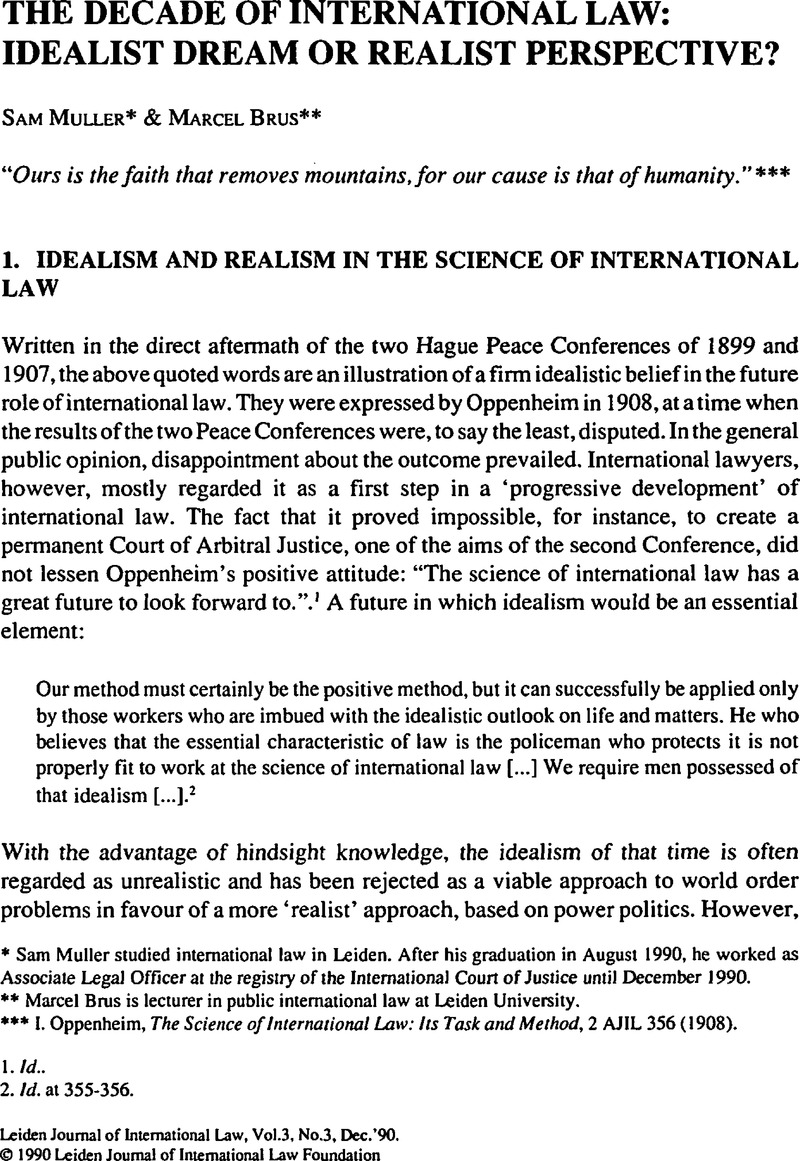No CrossRef data available.
Published online by Cambridge University Press: 21 July 2009

1 Id..
2 Id. at 35–356.
3 Projects undertaken by two of our contributes are examples of this. See, e.g., G. Clark and L.B. Sohn, World Peace Through World Law (1964); C. Black and R. Falk, The Future of the International Legal Order, (Vol. I–IV, 1969 – 1972).
4 B.V.A. Röling in his Preface to the third edition of Volkenrecht en Vrede (1985).
5 Fukuyama, F., The End of History, The National Interest 3–18 (Summer 1989).Google Scholar
6 26/62, Van Gend & Loos, ECR 1963,12.
7 Cf., Fukuyama, supra note 5, at 5: “The state that emerges at the end of history is liberal insofar as it recognizes and protects through a system of law man's universal right to freedom, and democratic insofar as it exists only with the consent of the governed.”
8 See, e.g., N. Luhmann, Ausdifferenzierung des Rechts; Bëitrage zur Rechtssoziologie und Rechtstheorie (1981); N. Luhmann, Legitimation durch Verfahren (1983); N. Luhmann, Soziale Systeme, Grundriss einer algemeinen Theorie (1984).
9 J.J. Mearsheimer, Back to the Future, International Security (1990).
10 See Franck, , Legitimacy in the International System, 82 AJIL 707,708 (1988); Henkin, How Nations Behave (1979).CrossRefGoogle Scholar
11 “Declaration of the Ministers for Foreign Affairs of the Movement of Non-Aligned Countries Meeting in The Hague to Discuss the Issue of Peace and the Rule of Law in International Affairs” of June 29,1986.
12 United Nations Decade of International Law, Report of the Secretary-General, U.N. Doc. A/45/430 (1990). See also U.N. Doc. A/45/430/Add. 1 (1990) and U.N. Doc. A/45/430/Add. 2 (1990).
13 U.N. Doc A/45/430, at 6.
14 G.A. Res. 44/23 of Nov. 17,1989, operative Para. 2(b).
15 U.N. Doc. A/45/430, at 8.
16 U.N. Doc. A/45/430/Add.2, at 14.
17 See also for the same proposal I. Oppenheim, supra note 1, at 323–324: “[The rudiments of international law] ought also to be tought in all secondary schools, and the teachers of history are the proper persons who could best undertake [this] […] If the public knew something about the merits of the case concerned they would frequently look upon the matter more cooly and in a more impartial way, and it would be easier for the governments to consent to arbitration.”